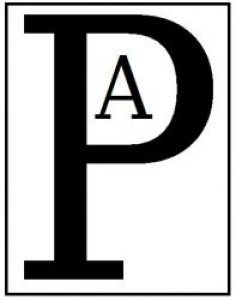
When asked about current trends and industries in the focus of antitrust regulators worldwide, no expert’s shortlist is complete these days without a reference to the pharma industry. The Commission and other EU regulators apparently share that view and recently published a report on what has happened in this sector in the previous years. The findings and statistics published in that report indicate that more is yet to come.
The European Commission (Commission) just released a report on competition enforcement in the pharmaceutical sector (Report), giving an overview of how the Commission and its national (EU) counterparts enforced antitrust and merger control rules in the sector between 2018 and 2022. The Report, being the sequel of the 2009-2017 edition, was originally meant as a response to concerns raised by the Council and the European Parliament. Those highlighted the need for access to affordable and innovative medicines for patients, which may be endangered by high and unsustainable price levels, business strategies by pharmaceutical companies, and limited bargaining power of governments.
The Report emphasizes that being healthy and having access to medicine and health care became rather crucial during the Covid-19 pandemic, which put the industry even more into the spotlight of antitrust regulators.
As a general remark, the Commission points out in the Report that the impact of its decisions, whether in behavioural matters or mergers, extends far beyond the individual cases. By having set a number of precedents on novel issues, those decisions have often affected the industry more broadly. Here is a run through some interesting pieces of the Report:
Enforcement across the board
In the relevant period, the Commission and the national competition authorities adopted 26 decisions in behavioural matters which either ended with the finding of an infringement or binding commitments. Even more cases, namely 40, ended without an intervention decision because the concerns were resolved during the investigation or there was no need to proceed a formal decision. And, with more than 30 investigations still ongoing, an end is not in sight.
Fines were imposed in 20 cases amounting to approximately EUR 780 million. To be fair, more than half of the total were the result of the Novartis/Roche investigation by the French regulator which was meanwhile quashed by a French appellate court. The Commission itself was “only” responsible for EUR 60 million of the fines, following the Romanian and Lithuanian regulator which imposed EUR 86 million and EUR 73 million, respectively.
In terms of substance, the cases were equally diverse. Half of the cases circulated around dominance issues, one third related to cartel cases more or less in the classical sense, and the rest was equally split between vertical concerns and pay-for-delay agreements.
Challenging mergers?
With a view to merger control, the Report only includes details on the Commission’s own cases during the relevant period. In the pharmaceutical sector (without considering biotech, therefore no Illumina/Grail this time, which you probably remember from other posts which can be found here and here), the Commission had to deal with more than 30 cases. Out of these, the Commission found five to be problematic from a merger control perspective, mainly for the following reasons: (i) risk of price increase, (ii) risk of depriving patients and national healthcare systems of certain products and (iii) the risk of diminishing innovation regarding certain treatments.
Perhaps obvious but sometimes overlooked in feasibility studies, the Commission points out that the competition concerns typically only related to a small number of products compared to the overall size of the companies’ portfolios. In the end, the Commission accepted remedies in four of the five problematic cases, with one case being abandoned by the merging parties.
However, the Commission intervened in approximately 17% of the cases, a significantly higher rate than in other sectors during the period (which was only 5%).
Crisis mode
The Report also quickly touches upon the unusual challenges during the Covid-19 crisis. Under the Temporary Framework Communication, adopted already in April 2020, the Commission set out the key rules for cooperation projects aimed at addressing shortage of supply and similar challenges as a consequence of the pandemic. It also made use of the possibility to provide comfort letters in two cases.
Outlook
Pharma remains a safe bet when it comes to “trendy” industries for antitrust regulators in the future. Enforcement has become even more international with regulators of smaller countries, potentially flying under the radar, having imposed severe fines of companies in the industry. Therefore, companies should prioritize compliance in all jurisdictions in which they operate.
With a view to merger control, parties should not prematurely assume that their portfolios are largely complementary, and concerns can be ruled out. Overlaps in smaller product categories can bring a case into phase 2 for which potential remedies should be considered at an early stage.
Photo by Matt Briney on Unsplash
